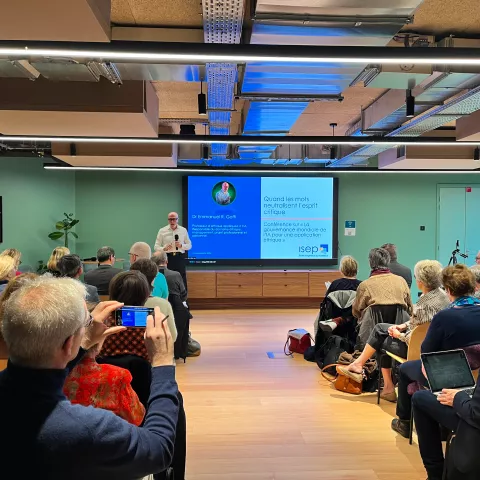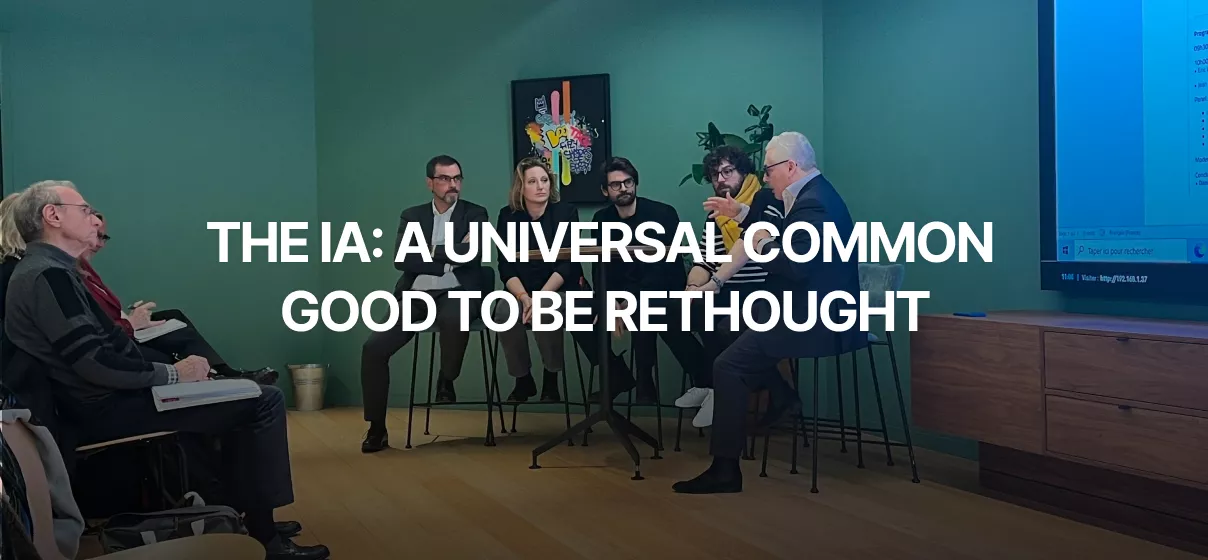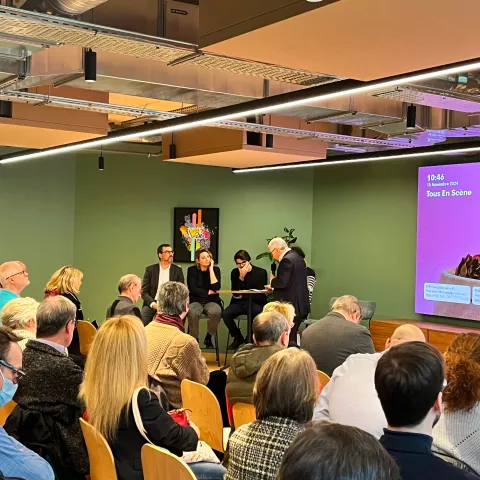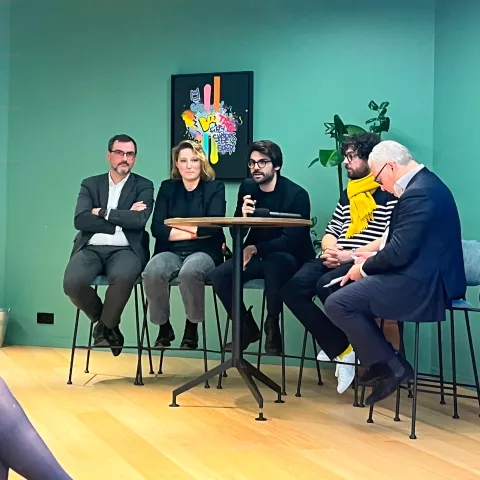
Governance of AI for ethical application

At the conference ‘Global Governance of AI for Ethical Application’, organised by the GlobalAI Association and the City of Issy-les-Moulineaux, Michel-Marie Maudet, CEO and Co-founder of LINAGORA, took part in a captivating debate alongside Delphine Dogot, Professor at the Faculty of Law at the Catholic University of Lille, Bertrand Cassar, Director of Strategic Data Valorisation for the La Poste Group, and Stefano Piano, Digital Advisor at Altruistic.
This speech was another opportunity to present the pioneering vision of the OpenLLM-France community in favour of open and transparent governance, illustrated in particular by LUCIE, the first truly Open Source generative AI model. Developed with 100% transparent training data, this innovative project embodies an ethical and sustainable alternative for the future of digital technology.
By mobilising local players, decision-makers and citizens, this event reinforced the urgent need to act collectively to build a responsible and inclusive digital future. Let's work together to make this vision a reality!
LUCIE: the Open Source AI model for inclusion and transparency
Issy-les-Moulineaux is the site of a major breakthrough in the field of artificial intelligence. The LUCIE model, which is entirely Open Source, has been designed to meet the current challenges of AI, particularly in terms of linguistic diversity, transparency and digital sovereignty. This project, supported by LINAGORA and the OpenLLM-France community, is part of a vision that favours inclusion, collaboration and sobriety in the face of the frantic race by major international corporations into artificial intelligence.
LUCIE: a true definition of open source
In his speech, Michel-Marie highlighted a frequent confusion surrounding the term Open Source. Historically, in the 1970s, open source software allowed anyone to rebuild a programme using elements supplied by the developer. Today, however, many so-called Open Source models, such as Llama or the Mistral AI models, do not fully respect this spirit. The main reason for this? The lack of transparency on training data.
Michel-Marie explains:
" Most so-called open source models are not really open source, because they lack transparency on training data. "
For LUCIE, the approach is different: to publish not only the model, but also the training data under an open licence. This transparency ensures that users understand the basis on which the model has been trained, a crucial factor in avoiding bias and boosting confidence in this type of model.
Rebalancing linguistic and cultural diversity with AI
An alarming finding is that in some AI models, such as Meta's, French accounts for only 0.16% of training data, an insignificant figure that reflects the under-representation of languages other than English. To correct this inequality, LUCIE devotes 30% of its dataset to French, while including other major European languages. English, although present, is limited to around 20% of the data, with a large proportion dedicated to scientific, mathematical and IT content, to reinforce the coherence of the model's responses.
" A language not only describes meanings, it also carries our culture and values. "
A way of preserving the cultural diversity of France and Europe through artificial intelligence,’ explains Michel-Marie.
A different kind of AI for Europe
LUCIE is part of a European vision of AI, based on cooperation and transparency. The aim is not to compete directly with giants like OpenAI or Google, but to offer an innovative, agile and sober alternative. Unlike models requiring colossal investments (sometimes in the hundreds of millions of euros), LUCIE was developed at a cost of less than €10 million. This strategic choice proves that it is possible to design powerful technologies while keeping financial and environmental resources under control.
Europe has many assets to help it achieve this ambition: some of the best engineers and researchers in the world, centres of excellence such as Paris-Saclay and ISEP, and recognised academic training. These strengths are even attracting international companies such as OpenAI, which are investing in France because of these unique skills.
Michel-Marie states that :
" We must not enter the race, but do things differently and unite!"
Cooperation and regulation: the pillars of a sustainable digital future
The LUCIE project illustrates the importance of regulation in structuring innovation. Although sometimes perceived as a brake, this regulation makes it possible to guarantee ethical AI that respects European values. LINAGORA's CEO stressed the crucial role of transparency and trust, fundamental principles of Open Source, in building accessible and inclusive models.
A vision for the future
With LUCIE, the town of Issy-les-Moulineaux becomes a symbol of responsible innovation and European unity in the face of the challenges of artificial intelligence. This model proves that it is possible to offer an alternative to the technological giants while promoting diversity, cooperation and sobriety. LUCIE shows that it is possible to do things differently, based on inclusion and sharing.
This project illustrates a strong conviction: artificial intelligence must be a common good, open to all, and reflecting the values of transparency and diversity that define Europe.

